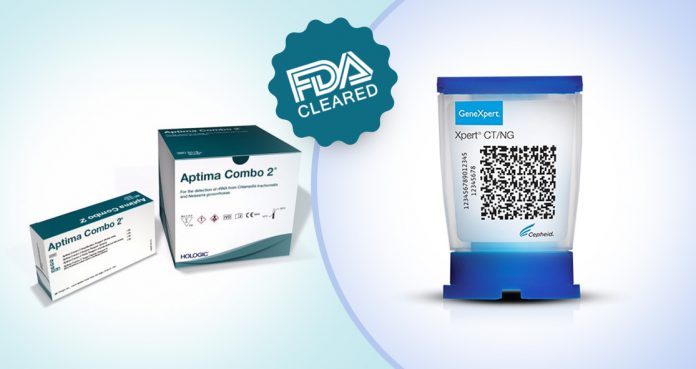On Thursday, the U.S. Food and Drug Administration (FDA) approved two diagnostic tests for marketing, which can help detect the presence of the pathogenic bacteria Chlamydia trachomatis and Neisseria gonorrhoeae, which causes chlamydia and gonorrhea, respectively.
These sexually transmitted infections (STIs) can now be detected through diagnostic testing of extragenital specimens.
The first two diagnostic tools cleared by the FDA for extragenital specimens through the throat and rectum include Aptima Combo 2 Assay and Expert CT/NG. Previously, these tools were only approved for testing samples collected from urine, vagina, and cervix.
Dr. Tim Stenzel, director of the Office of In Vitro Diagnostics and Radiological Health in the FDA’s Center for Devices and Radiological Health, said, “Prior to today, there were no chlamydia or gonorrhea tests cleared for use on samples from the throat and rectum. The availability of these two tests will fill an unmet public health need, by allowing for more screening.”
“It is best for patients if both of these sexually transmitted infections are caught and treated right away, as significant complications can occur if left untreated. Today’s clearances provide a mechanism for more easily diagnosing these infections,” said Dr. Stenzel.
According to the CDC, the rate of STIs is steadily increasing. In 2017, more than 1.7 million cases of chlamydia and 500,000 cases of gonorrhea were reported.
Typically, both STIs can be easily treated; however, if left untreated, they can cause serious complications, including infertility.
The FDA reviewed the two diagnostic tests through the premarket notification.
The agency reviewed clinical data collected from a cross-sectional study supported and funded by the National Institute of Allergy and Infectious Diseases. The study included more than 2,500 patients, which evaluated the diagnostic accuracy to the tests from the throat and rectum. Considering the results of the study, the FDA found that the Aptima Combo 2 Assay and the Xpert CT/NG for extragenital specimens are safe and effective for detecting chlamydia and gonorrhea.























